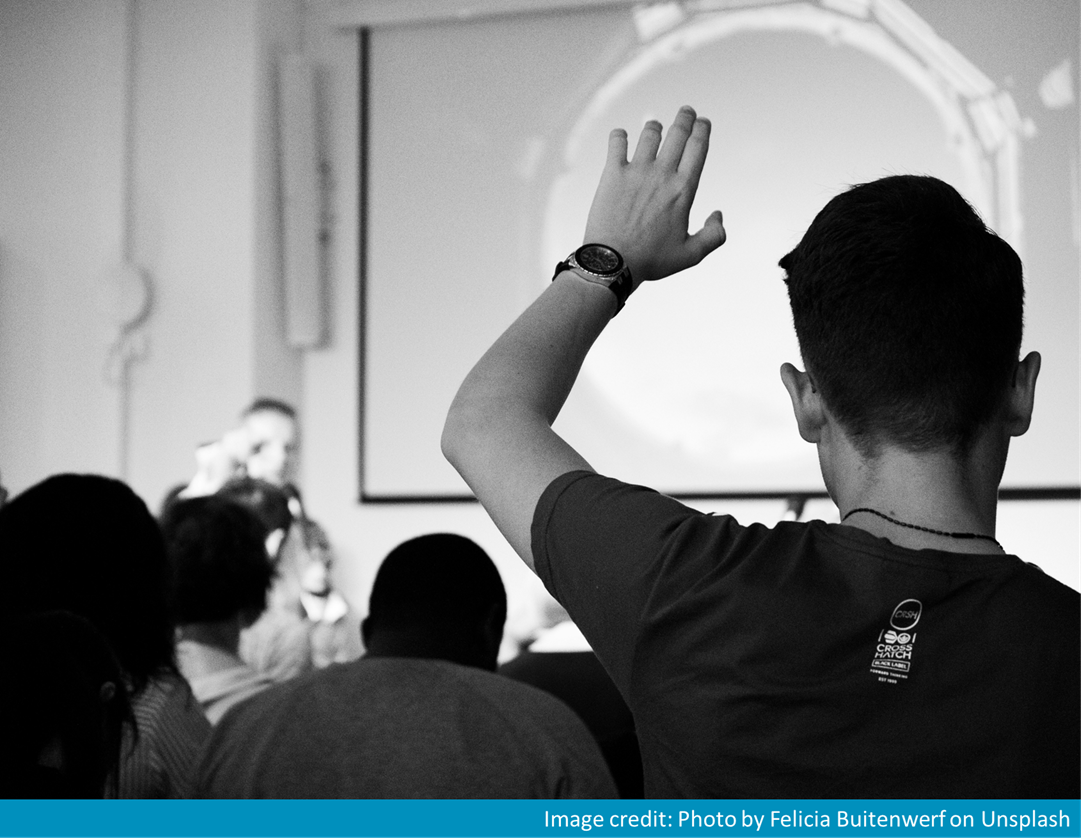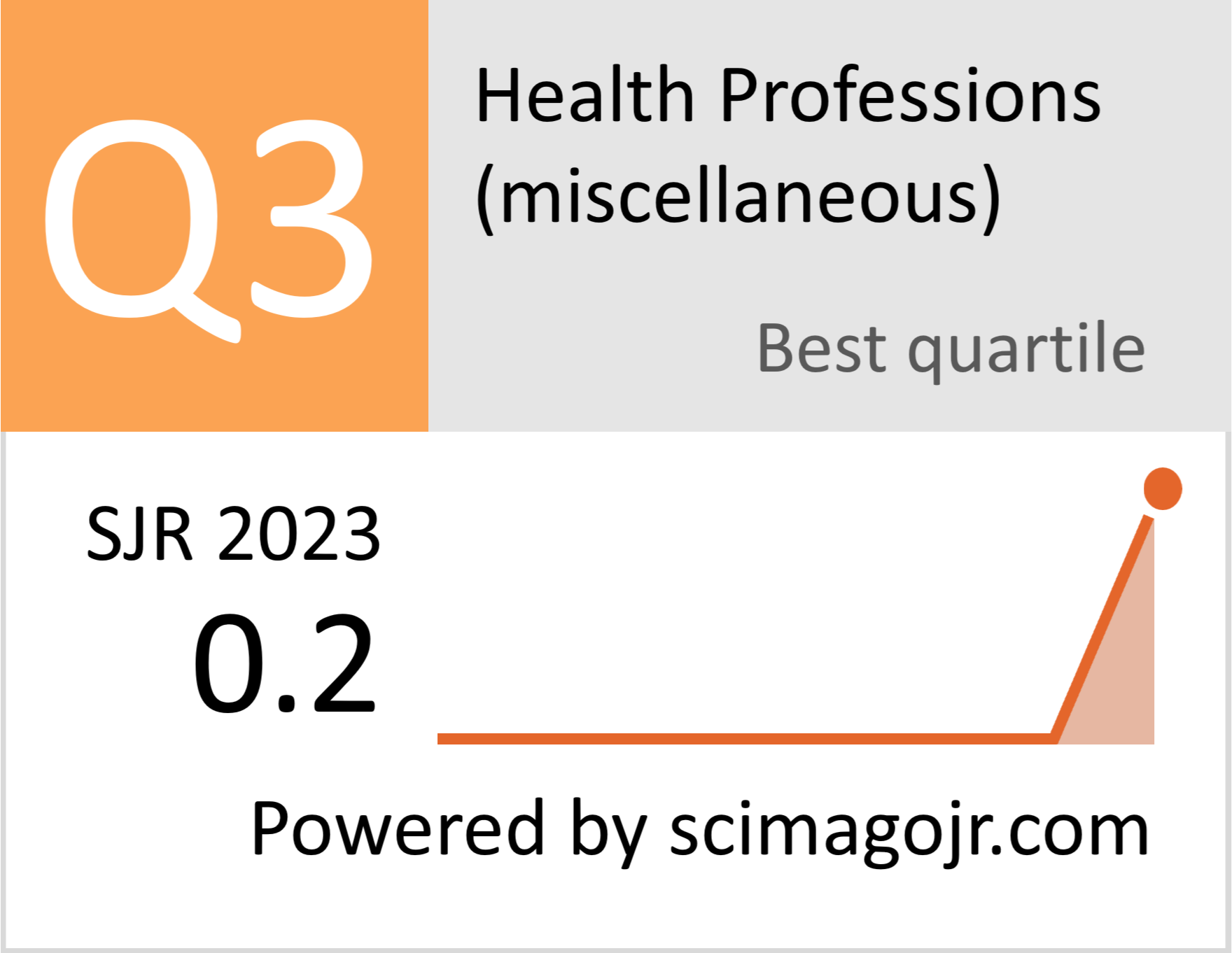Percepción de repercusión académica según el miedo al inicio de una gran guerra en estudiantes universitarios de Latinoamérica: encuesta transversal
Perception of Academic Impact in Latin American University Students based on the Fear of the Outbreak of a Large-scale War: Cross-sectional Survey

Esta obra está bajo una licencia internacional Creative Commons Atribución-NoComercial-SinDerivadas 4.0.
Mostrar biografía de los autores
Introducción. El conflicto militar entre Ucrania y Rusia está generando gran preocupación, ya que podría escalar potencialmente a una guerra a mayor escala. Esto ha vuelto a poner en riesgo las actividades académicas de los estudiantes.
Objetivo. Determinar el impacto académico percibido, basado en el miedo a una guerra a gran escala, entre los estudiantes universitarios de América Latina.
Método. Se realizó un estudio transversal, analítico y multicéntrico en siete países de América Latina, encuestando a 1,455 estudiantes universitarios. El impacto académico percibido se evaluó mediante un cuestionario categorizado y se analizó en relación con variables socioeducativas, ansiedad, depresión y estrés, medidos con la escala validada DASS-21.
Resultados. El análisis multivariado mostró que la percepción de un impacto académico significativo fue mayor entre quienes temían una guerra a gran escala (razón de prevalencia ajustada [RPa]: 1.35; IC 95%: 1.25–1.46; P < .001) y entre estudiantes con ansiedad severa o muy severa (RPa: 1.25; IC 95%: 1.12–1.40; P < .001). En contraste, los hombres (RPa: 0.81; IC 95%: 0.74–0.89; P < .001) y quienes residían en Paraguay, Perú, Bolivia, Ecuador y México presentaron una percepción menor de impacto.
Conclusión. Hubo una mayor percepción de impacto académico entre aquellos que percibían el potencial de un conflicto global, así como entre aquellos con ansiedad, mujeres, y de acuerdo al país de residencia.
Visitas del artículo 254 | Visitas PDF 162
- Kagarlitsky B, Puder J, Schmalz S. The whole world is becoming more like Russia. A conversation on deglobalization in the wake of the war in Ukraine. Berl J Soziol [Internet]. 2022;32(3):489-502. doi: https://doi.org/10.1007/s11609-022-00482-w DOI: https://doi.org/10.1007/s11609-022-00482-w
- Hunter P. Western science funders’ response to Russia’s invasion of Ukraine: European funding agencies are halting their collaborations with the Russian research establishment. EMBO Rep [Internet]. 2022;23(5):e55160. doi: https://doi.org/10.15252/embr.202255160 DOI: https://doi.org/10.15252/embr.202255160
- Matsuura H. Russia’s invasion of Ukraine and the future demographic crisis. Biodemography Soc Biol [Internet]. 2022;67(1):1-2. doi: https://doi.org/10.1080/19485565.2022.2061524 DOI: https://doi.org/10.1080/19485565.2022.2061524
- Koonin EV. Science in times of war: oppose Russian aggression but support Russian scientists. EMBO Rep [Internet]. 2022;23(4). doi: https://doi.org/10.15252/embr.202254988 DOI: https://doi.org/10.15252/embr.202254988
- Jagtap S, Trollman H, Trollman F, Garcia-Garcia G, Parra-López C, Duong L, et al. The Russia-Ukraine conflict: Its implications for the global food supply chains. Foods [Internet]. 2022;11(14):2-23. doi: https://doi.org/10.3390/foods11142098 DOI: https://doi.org/10.3390/foods11142098
- Nasir MA, Nugroho AD, Lakner Z. Impact of the Russian–Ukrainian conflict on global food crops. Foods [Internet]. 2022;11(19):1-16. doi: https://doi.org/10.3390/foods11192979 DOI: https://doi.org/10.3390/foods11192979
- Nilsson H, Saboonchi F, Gustavsson C, Malm A, Gottvall M. Trauma-afflicted refugees’ experiences of participating in physical activity and exercise treatment: a qualitative study based on focus group discussions. Eur J Psychotraumatol [Internet]. 2019;10(1). doi: https://doi.org/10.1080/20008198.2019.1699327 DOI: https://doi.org/10.1080/20008198.2019.1699327
- Kivelä L, Mouthaan J, van der Does W, Antypa N. Student mental health during the COVID-19 pandemic: Are international students more affected? J Am Coll Health [Internet]. 2024;72(2):414-22. doi: https://doi.org/10.1080/07448481.2022.2037616 DOI: https://doi.org/10.1080/07448481.2022.2037616
- Chang JJ, Ji Y, Li YH, Pan HF, Su PY. Prevalence of anxiety symptom and depressive symptom among college students during COVID-19 pandemic: A meta-analysis. J Affect Disord [Internet]. 2021;292:242-54. doi: https://doi.org/10.1016/j.jad.2021.05.109 DOI: https://doi.org/10.1016/j.jad.2021.05.109
- Sancak B, Agirbas UO, Yavuz B. How COVID-19 pandemic affected the psychiatry training of medical students in Turkey? What have we done and what can be done? Eur J Psychiatry [Internet]. 2021;35(4):278-9. doi: https://doi.org/10.1016/j.ejpsy.2021.05.002 DOI: https://doi.org/10.1016/j.ejpsy.2021.05.002
- Eleftheriou A, Rokou A, Arvaniti A, Nena E, Steiropoulos P. Sleep quality and mental health of medical students in Greece during the COVID-19 pandemic. Front Public Health [Internet]. 2021;9. doi: https://doi.org/10.3389/fpubh.2021.775374 DOI: https://doi.org/10.3389/fpubh.2021.775374
- Aslan H, Pekince H. Nursing students’ views on the COVID‐19 pandemic and their percieved stress levels. Perspect Psychiatr Care [Internet]. 2021;57(2):695-701. doi: https://doi.org/10.1111/ppc.12597 DOI: https://doi.org/10.1111/ppc.12597
- Ruiz Zúñiga MA, Henríquez R. ¿Cómo responden los estudiantes a problemas históricos?: Construcción de conexiones causales según entidad histórica y función causal. PE [Internet]. 2022;44(176):102-19. doi: https://doi.org/10.22201/iisue.24486167e.2022.176.60102 DOI: https://doi.org/10.22201/iisue.24486167e.2022.176.60102
- Erazo O. Rusia versus Ucrania: El conflicto. El Outsider [Internet]; 2022;7:98-106. doi: https://doi.org/10.18272/eo.v7i.2633 DOI: https://doi.org/10.18272/eo.v7i.2633
- Orozco LE. Conflicto ruso-ucraniano: estamos al borde de la tercera guerra mundial? [Internet]. Ciudad Juárez: Instituto de Ciencias Sociales y Administración; 2022. Available from: http://cathi.uacj.mx/20.500.11961/25168
- Bussoletti A, Universidad de Guadalajara. ¿Es la crisis ruso-ucraniana un momento de ruptura en la historia mundial?. Vínculos [Internet]. 2022;3(5):187-201. doi: https://doi.org/10.32870/vinculos.v0i5.7621 DOI: https://doi.org/10.32870/vinculos.v0i5.7621
- Bar-Tal D. Collective memory of physical violence: Its contribution to the culture of violence. In Cairns E, Roe MD, editors. The Role of Memory in Ethnic Conflict [Internet]. New York: Springer; 2003. p. 77-93. doi: https://doi.org/10.1057/9781403919823_5 DOI: https://doi.org/10.1057/9781403919823_5
- Bar-Tal D. Fear of peace: The human element in making peace. Oxford: Oxford University Press; 2020.
- Assefa Y, Tilwani SA, Moges BT, Shah MA. The impact of armed violence on students' educational attainment and the role of parents in resilience schooling and the education process. Heliyon [Internet]. 2022;8(12):e12192. doi: https://doi.org/10.1016/j.heliyon.2022.e12192 DOI: https://doi.org/10.1016/j.heliyon.2022.e12192
- Goto R, Frodl T, Skokauskas N. Armed Conflict and Early Childhood Development in 12 Low- and Middle-Income Countries. Pediatrics [Internet]. 2021;148(3):e2021050332. doi: https://doi.org/10.1542/peds.2021-050332 DOI: https://doi.org/10.1542/peds.2021-050332
- UNICEF [Internet].Ciudad de Panamá: UNICEF; c2024. When conflict meets the classroom: How does war affect education? 2018 Sep 19 cited 2023 Dec 11; [about 8 screens]. Available from: https://www.unicef.org/es/comunicados-prensa/m%C3%A1s-de-104-millones-de-ni%C3%B1os-y-de-j%C3%B3venes-1-de-cada-3-no-van-la-escuela-en-los
- Tasso AF, Hisli-Sahin N, San-Roman GJ. COVID-19 disruption on college students: Academic and socioemotional implications. Psychol Trauma [Internet]. 2021;13(1):9-15. doi: https://doi.org/10.1037/tra0000996 DOI: https://doi.org/10.1037/tra0000996
- Gómez-Restrepo C, Bohórquez A, Pinto Masis D, Gil Laverde JFA, Rondón Sepúlveda M, Díaz-Granados N. Prevalencia de depresión y factores asociados con ella en la población colombiana. Rev Panam Salud Publica [Internet]. 2004;16(6):378-86. doi: https://doi.org/10.1590/S1020-49892004001200003 DOI: https://doi.org/10.1590/S1020-49892004001200003
- Bdaiwi Y, Sabouni A, Patel P, Ekzayez A, Alchalati S, Abdrabbuh O, et al. Impact of armed conflict on health professionals' education and training in Syria: a systematic review. BMJ Open [Internet]. 2023;13(7):e064851. doi: https://doi.org/10.1136/bmjopen-2022-064851 DOI: https://doi.org/10.1136/bmjopen-2022-064851
- Mayer A, Yaremko O, Shchudrova T, Korotun O, Dospil K, Hege I. Medical education in times of war: a mixed-methods needs analysis at Ukrainian medical schools. BMC Med Educ [Internet]. 2023;23(1):804. doi: https://doi.org/10.1186/s12909-023-04768-2 DOI: https://doi.org/10.1186/s12909-023-04768-2
- González-Rivera JA, Pagán-Torres OM, Pérez-Torres EM. Depression, anxiety and Stress Scales (DASS-21): Construct validity problem in Hispanics. Eur J Investig Health Psychol Educ [Internet]. 2020;10(1):375-89. doi: https://doi.org/10.3390/ejihpe10010028 DOI: https://doi.org/10.3390/ejihpe10010028
- Hernández B, Velasco-Mondragón HE. Encuestas transversales. Salud pública de México [Internet]. 2000;42(5): 447-55. Available from: https://www.saludpublica.mx/index.php/spm/article/view/6263/7482 DOI: https://doi.org/10.1590/S0036-36342000000500011
- Quipe AM, Valentin EB, Gutierrez AR, Mares JD. Serie de Redacción Científica: Estudios Trasversales. Rev Cuerpo Med HNAAA [Internet]. 2020;13(1):72-7. doi: http://dx.doi.org/10.35434/rcmhnaaa.2020.131.626 DOI: https://doi.org/10.35434/rcmhnaaa.2020.131.626
- Limone P, Toto GA, Messina G. Impact of the COVID-19 pandemic and the Russia-Ukraine war on stress and anxiety in students: A systematic review. Front Psychiatry [Internet]. 2022;13:1081013. doi: https://doi.org/10.3389/fpsyt.2022.1081013 DOI: https://doi.org/10.3389/fpsyt.2022.1081013
- Keegan J. Historia de la guerra. Luis Alberto Villamarin Pulido; 2023. 738 p.
- Brezzo LM. La guerra de la Triple Alianza en los límites de la ortodoxia: mitos y tabúes. Universum [Internet]. 2004;19(1):10-27. doi: https://doi.org/10.4067/S0718-23762004000100002 DOI: https://doi.org/10.4067/S0718-23762004000100002
- Cairo Carou H, Lois M. Geografía política de las disputas de fronteras: cambios y continuidades en los discursos geopolíticos en América Latina (1990-2013). Cuad Geogr Rev Colomb Geogr [Internet]. 2014;23(2):45-67. doi: https://doi.org/10.15446/rcdg.v23n2.39578 DOI: https://doi.org/10.15446/rcdg.v23n2.39578
- Park C, McClure Fuller M, Echevarria TM, Nguyen K, Perez D, Masood H, et al. A participatory study of college students’ mental health during the first year of the COVID-19 pandemic. Front Public Health [Internet]. 2023;11:1116865. doi: https://doi.org/10.3389/fpubh.2023.1116865 DOI: https://doi.org/10.3389/fpubh.2023.1116865
- Urzúa A, Samaniego A, Caqueo-Urízar A, Zapata Pizarro A, Irarrázaval Domínguez M. Salud mental en trabajadores de la salud durante la pandemia por COVID-19 en Chile. Rev Med Chile [Internet]. 2020;148(8):1121-7. doi: https://doi.org/10.4067/S0034-98872020000801121 DOI: https://doi.org/10.4067/S0034-98872020000801121
- Parrado-González A, León-Jariego JC. COVID-19: factores asociados al malestar emocional y morbilidad psíquica en la población española. Rev Esp Salud Publica [Internet]. 2020;94:1-16. Available from: https://ojs.sanidad.gob.es/index.php/resp/article/view/825
- Alotaibi NM. Future anxiety among young people affected by war and armed conflict: Indicators for social work practice. Front Sociol [Internet]. 2021;6:729811. doi: https://doi.org/10.3389/fsoc.2021.729811 DOI: https://doi.org/10.3389/fsoc.2021.729811
- Velastegui D, Bustillos A, Flores F, Lascano MM. Efectos de la emergencia sanitaria por COVID-19 en la salud mental de hombres y mujeres de la zona 3 del Ecuador. ID [Internet]. 2022;12(1):16-26. doi: https://doi.org/10.31243/id.v12.2020.983 DOI: https://doi.org/10.31243/id.v12.2020.983
- Massa JLP. Salud Mental en la pandemia COVID-19: Hacia la pospandemia. Madrid: CIS; 2023. 111 p.
- Ullah M, Khan MS, Sultan K. Relationship between fear and the students’ academic achievement in the context of war hazards. Gomal University Journal of Research [Internet]. 2016;32(1):111-8. Available from: http://www.gujr.com.pk/index.php/GUJR/article/view/1151
- Al Saadi T, Zaher Addeen S, Turk T, Abbas F, Alkhatib M. Psychological distress among medical students in conflicts: a cross-sectional study from Syria. BMC Med Educ [Internet]. 2017;17(1):173. doi: https://doi.org/10.1186/s12909-017-1012-2 DOI: https://doi.org/10.1186/s12909-017-1012-2
- Cedillo-Balcázar J. Un modelo cooperativo de formación médica en pregrado como estrategia preventiva de trastornos mentales. FEM [Internet]. 2021;24(6):327. doi: https://doi.org/10.33588/fem.246.1160 DOI: https://doi.org/10.33588/fem.246.1160
- Cedillo-Balcázar J. El papel de las universidades y hospitales en el bienestar y la formación profesional del interno de medicina. FEM [Internet]. 2022;25(1):45. doi: https://doi.org/10.33588/fem.251.1165 DOI: https://doi.org/10.33588/fem.251.1165



